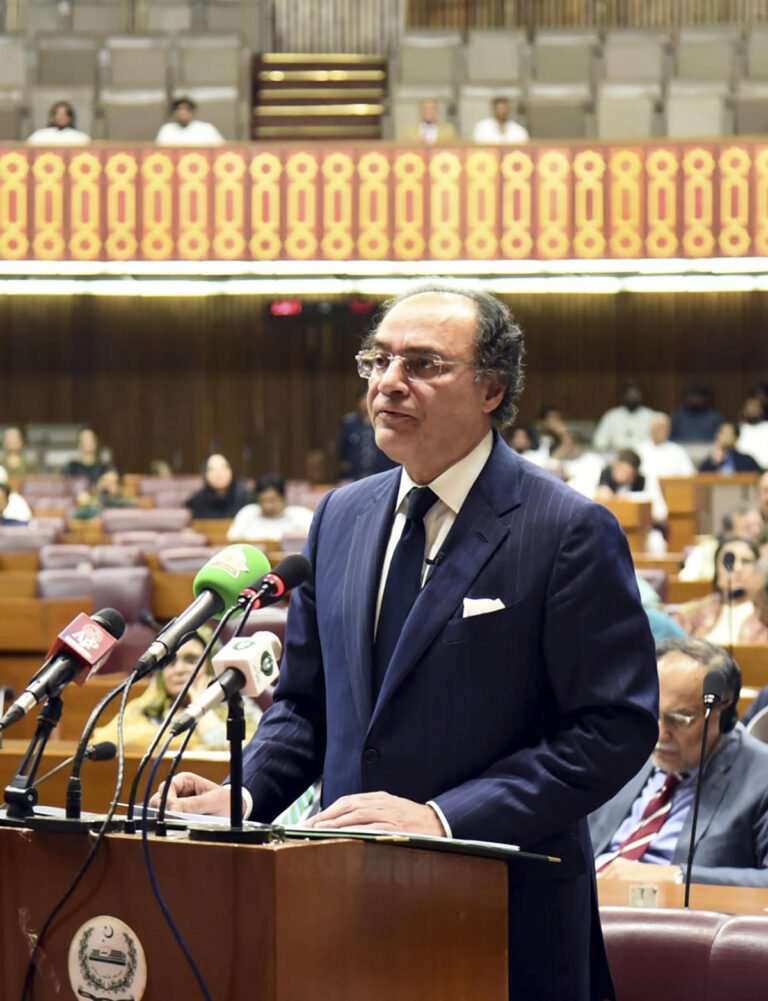ISLAMABAD (AP) — Pakistan’s new coalition government presented its first budget in parliament on Wednesday, pledging to raise civil servant salaries by up to 25 percent and setting ambitious tax revenue targets while talks with the International Monetary Fund on a new bailout package continue.
The new budget, up from $50 billion last year to about $68 billion, is aimed at qualifying for a long-term loan of $6 billion to $8 billion from the IMF to help stabilize an economy that was on the brink of defaulting on its foreign debt in 2023, analysts said.
Pakistan’s fiscal year begins on July 1. Finance Minister Muhammad Aurangzeb said Prime Minister Shehbaz Sharif’s government wants to achieve economic growth of 3.6 percent.
Aurangzeb also said Pakistan’s inflation rate had fallen to 12 percent after it briefly topped 40 percent last year, sparking violent protests.
“Now we are moving in the right direction,” Aurangzeb said.
He announced that Pakistan has set an ambitious target of collecting 13 trillion rupees ($44 billion) in taxes, 40 percent higher than this fiscal year, and that the government will ensure an increase in the number of taxpayers.
Currently, about 5 million of Pakistan’s 240 million people pay tax.
In talks with the IMF, Aurangzeb said Pakistan would privatise its national airline, Pakistan International Airlines, which has been losing money and struggling for decades because the government has given favours to donors by giving them jobs at the airline.
Aurangzeb also said higher electricity tariffs have already led tens of thousands of Pakistanis to install Chinese-made solar power systems in their homes, shops, schools, hospitals and factories, and the government will encourage the private sector to manufacture solar panels and other equipment.

